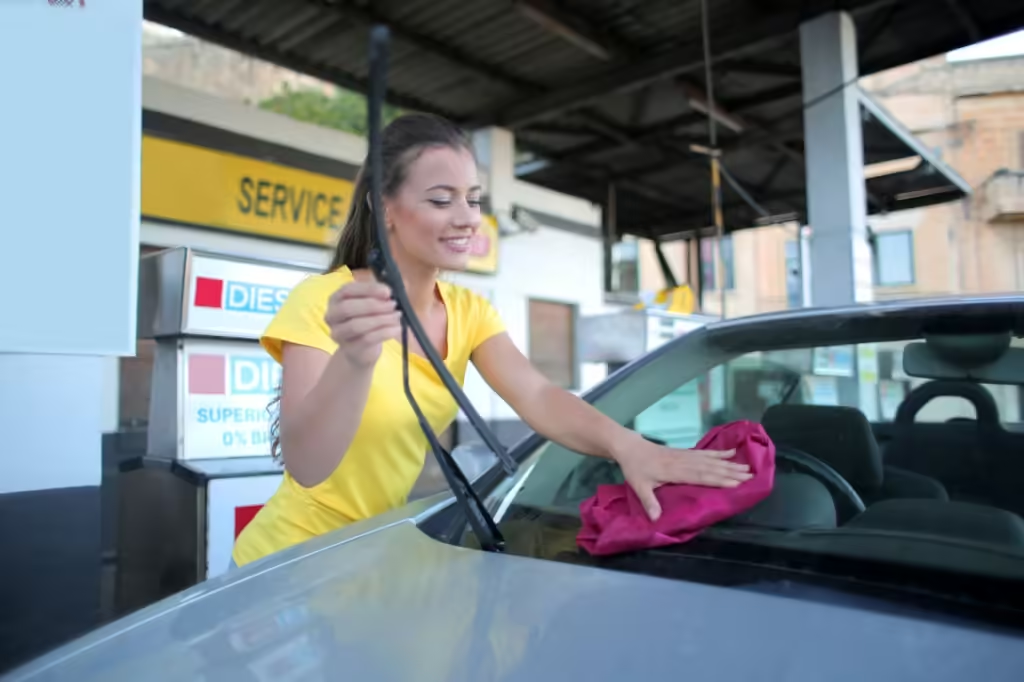Car scams are more common than most people think. They come in many shapes and sizes, targeting drivers who might not know how to spot the warning signs. Whether you’re buying, selling, or simply maintaining your vehicle, scammers are always looking for ways to take advantage of unsuspecting drivers.
Why are car scams so dangerous? The answer is simple: they can cost you a lot of money, waste your time, and even leave you without a car. Imagine paying for a car that doesn’t exist or being tricked into unnecessary repairs. It’s a nightmare no driver wants to experience.
The good news is that you don’t have to be a victim. By understanding the most common car scams and learning how to avoid them, you can protect yourself and your wallet. That’s what this blog is all about—arming you with knowledge so you can drive with confidence.
Ready to learn how to spot and avoid these traps? Let’s dive into the details and uncover the tricks scammers use, along with expert tips to keep you safe on the road.
Understanding Car Scams

Car scams are clever tricks or frauds designed to take advantage of drivers, buyers, and sellers in the car market. They can happen to anyone—whether you’re buying a car, selling one, or even getting your vehicle repaired. But the good news is, with a little knowledge, you can spot these scams before it’s too late.
What Are Car Scams?
Car scams come in many forms. Some are as simple as a fake online ad for a car that doesn’t exist. Others are more complex, like altering a vehicle’s documents to hide its true history. In every case, the goal is the same: to trick people into giving away their money.
For example, a scammer might sell you a car with a “clean” history that actually had major damage. Or, a dishonest mechanic might charge you for repairs you don’t need. These scams may seem harmless at first, but they can cause big problems down the road.
Why Are Car Scams So Common?
Car scams are so common because cars are expensive and complicated. Many people don’t know all the ins and outs of buying, selling, or maintaining a car. Scammers take advantage of this lack of knowledge.
Another reason is that cars involve high-value transactions. When there’s a lot of money involved, scammers see an opportunity. They know people might rush into decisions without checking all the details. That’s why it’s so important to stay alert and informed.
By understanding what car scams are and why they happen, you’ve already taken the first step to protect yourself. In the next section, we’ll look at some of the most common car scams you need to watch out for. Stay tuned.
Top 7 Common Car Scams Every Driver Should Know

Car scams come in many forms, and scammers are always thinking of new ways to trick drivers. Knowing the most common types of scams can help you spot the red flags and avoid becoming a victim. Let’s take a closer look at the scams you need to watch out for.
1. Fake Car Sales
Fake car sales often start with an online ad. The car looks perfect, the price seems like a steal, and the seller sounds friendly. But here’s the catch—it’s all a lie. The car doesn’t exist.
Scammers ask for upfront payments or deposits to “secure” the deal. Once you send the money, they disappear. Always meet the seller in person and verify the car’s existence before making any payments.
2. Odometer Fraud
Odometer fraud is an old trick but still very effective. Scammers roll back the mileage on a car to make it seem newer and more valuable than it really is.
A car with lower mileage sells for more money, so this scam can cost you thousands. To avoid it, get a trusted mechanic to inspect the car and check the vehicle’s history report.
3. Vehicle History Report Scams
Some sellers provide fake vehicle history reports to hide a car’s true past. The car may have been in a serious accident, declared a total loss, or have flood damage.
Never trust a history report given to you by the seller. Use a reliable service like Carfax or AutoCheck to get an independent report.
4. Fake Repair Scams
Dishonest mechanics sometimes recommend unnecessary repairs or charge for work they never do. They might say, “Your brakes are completely worn out,” when they’re not, or charge for a part they never replaced.
The best way to avoid this scam is to go to a trusted repair shop with good reviews. Don’t be afraid to get a second opinion if something feels off.
5. Tow Truck Scams
Imagine your car breaks down on the side of the road, and a tow truck conveniently shows up to help. It seems like a lifesaver, but it could be a scam.
Some tow truck operators take your car to a shady repair shop and charge outrageous fees. Always use a towing service you trust or call your roadside assistance provider directly.
6. Warranty or Insurance Scams
Have you ever gotten a call or email about your car’s extended warranty? It might be a scam. Fake warranty and insurance offers often look legitimate but are designed to steal your money.
Always verify the company offering the warranty or insurance. If it sounds too good to be true, it probably is.
7. Title Washing
Title washing is when scammers erase a car’s problematic history by manipulating its title documents. They may take a car with a salvage title and make it look clean to sell for a higher price.
To protect yourself, check the car’s title status through your local DMV or a trusted vehicle history service.
Scammers are good at what they do, but with these tips, you’ll know how to stay one step ahead. In the next section, we’ll share expert advice on avoiding car scams altogether.
Expert Tips to Avoid Falling Victim

Car scams can be sneaky, but you don’t have to be their next victim. By staying cautious and following these expert tips, you can protect yourself and your hard-earned money.
1. Research Before You Buy or Sell
Before buying a car or selling yours, take time to do your homework. Research the seller or buyer to make sure they are trustworthy.
If you’re buying, use reliable websites or dealerships. Avoid deals that seem too good to be true—because they usually are. If you’re selling, never give out personal details until you’re sure the buyer is genuine.
2. Inspect the Vehicle Thoroughly
Never skip the inspection. Whether you’re buying a used car or checking a repair, an inspection can save you from falling for scams.
Bring a trusted mechanic to examine the car. Look for any signs of tampering, especially with the odometer. And don’t forget to check the Vehicle Identification Number (VIN) to confirm the car’s history.
3. Be Cautious with Payments
When money is involved, be extra careful. Avoid paying in cash or using services like wire transfers, which are harder to trace.
For car purchases, use secure payment methods like bank transfers or cashier’s checks. And if you’re the seller, don’t hand over the car until the payment clears in your account.
4. Use Trusted Mechanics and Repair Shops
If your car needs repairs, stick to mechanics and shops with good reputations. Look for online reviews or ask friends and family for recommendations.
Avoid places that pressure you into unnecessary repairs or won’t provide a clear estimate. A second opinion is always a smart move if something feels off.
5. Verify Documentation and History
Before you buy, double-check all the paperwork. This includes the car’s title, registration, and history report.
Use trusted services like Carfax or AutoCheck to confirm the car’s past. If the seller is hesitant to share these details, it’s a red flag. Walk away if anything feels suspicious.
6. Report Suspicious Activities
If you suspect a scam, don’t stay quiet. Reporting it can protect others from falling victim too.
Contact your local police, the Better Business Bureau (BBB), or consumer protection agencies. Sharing your experience could stop a scammer in their tracks.
Being informed and vigilant is your best defense against car scams. By following these tips, you can make smarter decisions and avoid unnecessary headaches. Up next, we’ll share some real-life stories to show just how common these scams are—and how people can fight back.
Real-Life Examples of Car Scams
Sometimes, hearing about real-life experiences can help us understand just how dangerous car scams can be. Here are a few stories of drivers who fell victim to car scams, along with the lessons they learned.
Example 1: The Fake Car Sale

A couple was searching for a used car online and found a deal that seemed too good to pass up. The seller had a car listed at a great price, with lots of photos and a detailed description. They communicated through email and phone calls, and the seller seemed friendly and trustworthy.
The couple was asked to send a deposit to hold the car. They did, but when they tried to follow up, the seller stopped responding. The couple realized they’d been scammed—they had sent money for a car that didn’t exist.
Lesson learned: Always meet the seller in person before sending any money, and be cautious of deals that seem too good to be true. If the seller is unwilling to meet or provide proof of ownership, walk away.
Example 2: The Unnecessary Repairs
A woman took her car to a local repair shop for an oil change. The mechanic told her that her brakes were in poor condition and needed immediate replacement. The cost was high, but the mechanic insisted it was urgent for safety reasons.
Feeling worried, she agreed to the repairs. Later, she took the car to another shop for a second opinion. It turned out her brakes were perfectly fine. She had paid for work that wasn’t needed at all.
Lesson learned: Always get a second opinion, especially when a repair seems too costly or unnecessary. Trustworthy shops will give you an honest estimate and won’t pressure you into doing work you don’t need.
These real-life stories show how easy it is to fall victim to car scams, but they also highlight the importance of being cautious and doing your homework. By staying informed and following the expert tips shared earlier, you can avoid these common pitfalls and drive with peace of mind.
Key Takeaways for Drivers

Car scams are a real threat, but with the right knowledge, you can protect yourself. Here are the key takeaways every driver should remember:
1. Stay Informed
The more you know about car scams, the less likely you are to fall for them. Be aware of the most common scams, like fake car sales, odometer fraud, and unnecessary repairs. The more informed you are, the better decisions you’ll make when buying, selling, or maintaining a car.
2. Always Do Your Research
Never skip the research. Whether you’re buying a car or hiring a mechanic, check reviews, ask for recommendations, and verify any claims. Look up the car’s history, check the title, and always inspect the vehicle in person before committing to a deal.
3. Trust Your Instincts
If something doesn’t feel right, it probably isn’t. Trust your gut and take your time with major decisions. If a deal feels too good to be true, or if the seller is rushing you, take a step back and reconsider.
4. Use Secure Payment Methods
When making payments for a car, always use secure methods. Avoid paying in cash or wiring money. Bank transfers and cashier’s checks offer better protection and can help you track the transaction if something goes wrong.
5. Get Professional Help
Before buying a used car or committing to repairs, bring in a trusted mechanic for an inspection. A second opinion can save you from making costly mistakes and help spot issues that may not be obvious at first.
6. Report Suspected Scams
If you suspect a scam, report it. Sharing your experience helps protect others and can prevent scammers from targeting more people.
By following these tips and staying vigilant, you can avoid the common traps set by car scammers. Remember, knowledge is your best defense against fraud. Stay aware, and you’ll be able to navigate the car market with confidence.
Summary
Car scams are unfortunately all too common, but by staying informed and taking the right precautions, you can avoid becoming a victim. Whether you’re buying a car, selling one, or simply maintaining your vehicle, knowledge is your best defense.
Remember to research everything, verify all documents, and trust your instincts. If something feels off, it’s better to walk away than to risk losing money or, worse, ending up with a car that causes more problems than it’s worth.
By following the expert tips shared in this blog, you can spot car scams from a mile away. Stay cautious, and don’t let scammers take advantage of you. Share this information with others to help spread awareness and keep more drivers safe.
Drive smart, stay safe, and enjoy the road without worrying about falling for car scams.



